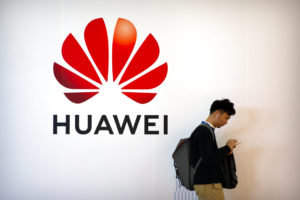Question: It seems that everywhere you look in the world, the economies that are reopening are experiencing a return of COVID-19 cases. This is obviously leading some places to revert to stricter quarantine measures. Doesn’t the future look bleak? Asked at “Ask a Friend, Ask Efren” Free service at www.personalfinance.ph, SMS, Viber, Twitter, LinkedIn, WhatsApp, Instagram and Facebook.
Answer: The phrase “This, too, shall pass” is of Persian origin and reflects the temporary nature of human condition. The phrase is from a fable, which appeared in American papers as early as 1839, of a powerful king who asked his wise men to create a ring that would make him happy when he was sad. The wise men came up with a ring on which was etched Persian words that translated to the phrase “This, too, shall pass.” But it was a double-edged sword of sorts as the phrase also meant the king’s happiness could not be forever and even that, too, shall also pass.Under the ongoing global pandemic, the phrase “This, too, shall pass” is appropriate. More importantly, consider the following:
A virus, an infective agent too small to be seen by light microscopy, has brought the entire world to its knees. But, in the process, it has also shown that the battle against climate change can be won, has put a pause to trade wars, has highlighted the facial mask as a symbol of living life in consideration of others, has renewed family relationships, has brought the world even closer through technology and has deepened the Faith.That same virus highlighted how much people of color in the United States are disadvantaged, and how it helped bring to a boil the cases of racial discrimination, which would have otherwise fallen into the dust bin of history like most other cases before them, and to galvanize not just people in the United States but also around the world against such discrimination.That same virus has also stripped the leaders of nations naked, through their response to the virus (whether right or wrong), and has shown their constituents their leaders’ true nature, which will figure prominently in their respective political careers going forward.
That same virus has brought the world together in a colossal effort heretofore unseen to find the vaccine against that virus, the cure for the diseases it causes and the financial support for economies. There is already a drug, albeit expensive and for critical COVID-19 patients only. On the other hand, scientists are cautiously optimistic that a vaccine will be available by early 2021.While an analysis of past economic devastation shows that it takes years to recover, markets are beginning to push up asset prices in anticipation of a miraculous V-shaped recovery, as instantaneous as bringing in light into a dark room at the flip of a switch. Though the development of the vaccine and cure for the virus are in sight, economic recovery might well be U-shaped instead.
Still, that recovery will not stop forward-looking investors in positioning early, perhaps more for the long haul rather than for a short-term trade. In fact, there is, at this point, a greater risk for trading than for holding.What is clear is that the episode with the virus is now shaping to be a modern-day version of the flooding during the time of Noah. It is an episode of cleansing, of starting anew, of stopping the making of excuses for past excesses, of doing what is right this time. To a certain extent, we have the almost infinitesimally small virus to thank for these.
Yet what is more important than the looming recovery itself is the rainbow that will be our promise to ourselves to protect the gains to be made in the environment, in business processes, in governance, in racial equality, in international trade, in social interaction, in family relationships and in the Faith. INQ


